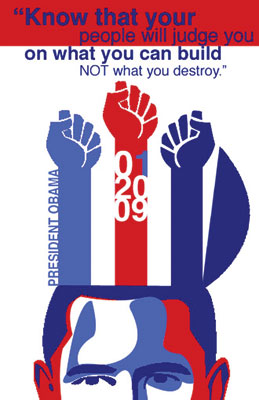All Nonfiction
- Bullying
- Books
- Academic
- Author Interviews
- Celebrity interviews
- College Articles
- College Essays
- Educator of the Year
- Heroes
- Interviews
- Memoir
- Personal Experience
- Sports
- Travel & Culture
All Opinions
- Bullying
- Current Events / Politics
- Discrimination
- Drugs / Alcohol / Smoking
- Entertainment / Celebrities
- Environment
- Love / Relationships
- Movies / Music / TV
- Pop Culture / Trends
- School / College
- Social Issues / Civics
- Spirituality / Religion
- Sports / Hobbies
All Hot Topics
- Bullying
- Community Service
- Environment
- Health
- Letters to the Editor
- Pride & Prejudice
- What Matters
- Back
Summer Guide
- Program Links
- Program Reviews
- Back
College Guide
- College Links
- College Reviews
- College Essays
- College Articles
- Back
Qualities of Effective Leadership
What is a leader? Who is a leader? How do you know what a leader looks like? Forbes Magazine published an article in December 2015 entitled The 10 Golden Rules of Leadership. Inside the article, it talks about how the best leaders make a change. The general consensus of being a leader is that you need to make a change, a difference in the world, and leave a positive footprint on the world. Change can be defined in so many ways. Whether it’s Mahatma Gandhi's peaceful protests against the tyrannical rule of the British, Martin Luther King Jr. leading the March on Washington fighting in the Civil Rights Movement, or the class president of your school who implemented a healthier lunch menu in the cafeteria. If a leader is said to have made a change, what characteristics would a leader need to make this change? Three of the most important qualities a leader must have to be effective is a motivation and/or drive, a vision for the future and a good balance between strength and compromise.
“Change will not come if we wait for some other person or some other time. We are the ones we've been waiting for. We are the change that we seek,” says President Barack Obama. Throughout his two terms as president of the United States, he used his motivation and drive, both key factors in making a change, to complete tasks such as pass healthcare reform and end the Iraq war. As a leader and a role model for the people of the United States, Obama understood the importance of his job and similar to Great Britain’s King George VI, he found motivation knowing that his people needed him and that the job was selfless and for the people. Motivation cannot be forced, you either have it or you don’t. In order for a leader to be effective, the person must have motivation in order to complete their goals.
A leader requires a vision. They have to set goals that will help them improve. Former President Ronald Reagan says it best, “to grasp and hold a vision, that is the very essence of successful leadership—not only on the movie set where I learned it, but everywhere.” Reagan talks about learning how to have a vision on the set of his movie, Kings Row, which shows that leadership can be found anywhere, not just as president of the United States. Motivation and a vision of the future go hand-in-hand. Without one, there isn’t the other and vise versa. Having a mental image that embodies our hopes and ideals gives us a reason to improve. A vision provides motivation and inspires us to continue along the path that we’ve set before ourselves. Having a vision is essential for a leader because without a vision, no goals would be fulfilled nor tasks completed. If a leader must bring change, they need to hold onto a vision for the future and create a plan to be accomplished.
Lastly, the most effective leaders find a balance between strength and compromise. “If you just set out to be liked, you would be prepared to compromise on anything at any time and you would achieve nothing,” says Margaret Thatcher in her article The Top 5 Leadership Lessons Margaret Thatcher Taught Us. The final lesson talked about compromise and how you cannot appear too weak nor too stubborn to make a change and get the job done. In a position of leadership, it is often difficult to create a professional relationship of trust that, in turn, helps reach an end goal. Strength, especially in a woman is a vital characteristic because often times in the workplace, men may see women as lesser. This causes women to put up a front of constant defense. All leaders need to be strong with well-formed opinions and ideas, but women especially must be focused and tenacious.
The essential qualities all good leaders have are a motivation, an influential vision for the future, and a strong understanding of the necessary balance between strength and compromise. Just because the quotes I chose for this paper were all from past presidents and prime ministers, it doesn’t mean that you have to have an official position or title to be a leader. A leader can be anyone to make change in the world. Anyone who leads a group of people to reach a common goal. As the president of my youth group chapter, I strive to be the best leader and role model for the rest of the members in my section. Being a leader is very important to me and I value respect from others while trying to keep a very important balance between my friendships and professional relationships.

Similar Articles
JOIN THE DISCUSSION
This article has 0 comments.
